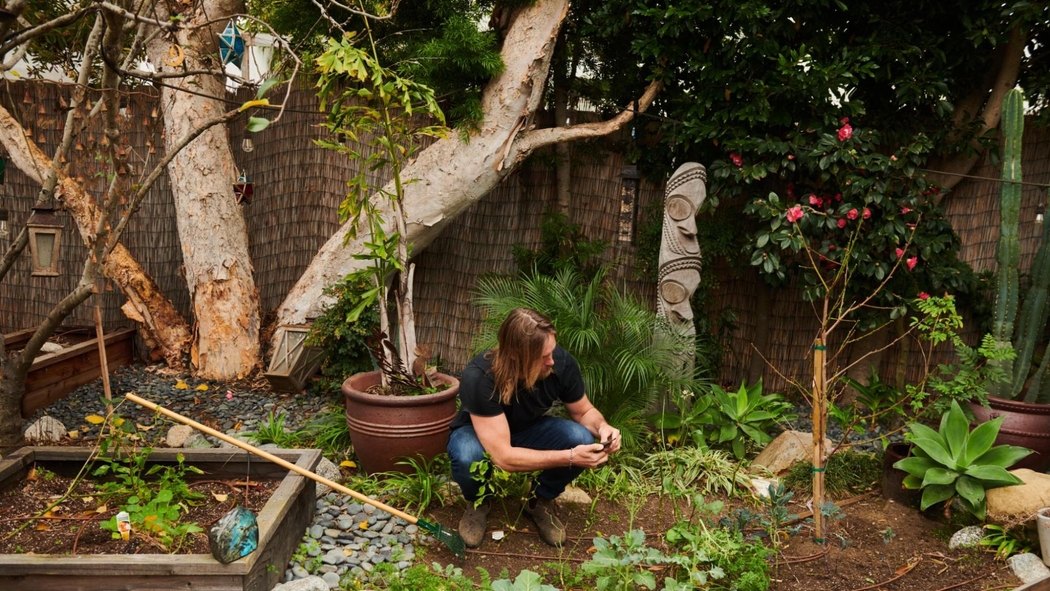Էկոլոգիապես պատասխանատու հյուրընկալողների համար նախատեսված ուղեցույց
Առանձնահատկություններ
Investing in energy-efficient appliances can ultimately save you money
Switching to sustainable household essentials like washable cleaning cloths can reduce your environmental footprint
Installing low-flow fixtures can help conserve water
Being an environmentally-responsible Host is not only good for the planet, it’s also good for your hosting business. In 2019, the number of stays at eco-friendly homes increased by 141 percent* over the previous year.
To help you become a more sustainable Host, we worked closely with the United Nations Environment Programme, the leading global environmental authority in the United Nations, and World Wildlife Fund, the world’s leading conservation organization, for expert insights. We also gathered advice from Hosts around the world who took simple but impactful steps to make a difference.
Read on to discover how you can create a more sustainable stay for your guests.
Implement energy-efficient upgrades
Making your space more energy-efficient can reduce the amount of resources you use, lower your expenses, and decrease your carbon footprint. Here are some ideas for conserving energy:
- Remind guests to unplug devices when they’re not in use: Up to 50%** of the energy used by mobile phones comes from chargers that are plugged in when they’re not being used.
- Adjust your water heater: While the standard temperature for a water heater is 140 degrees Fahrenheit (60 degrees Celsius), lowering it to 120-130 degrees Fahrenheit (48-54 degrees Celsius) can help save energy.
- Check your lightbulbs: Using the lowest possible wattage can produce less heat and decrease your energy consumption over time. Energy-efficient light bulbs, like CFL and LED, also use less energy and last longer** than incandescent options.
- Weatherproof your space: Install weather stripping on doors and insulate windows to help save on heating and cooling costs.
- Buy smart thermostats with automated controllers: Wifi-enabled thermostats can allow you to regulate the temperature based on guests’ arrivals and departures.
- Evaluate your appliances: When it’s time to buy new appliances, opt for ones with high energy-efficient ratings.
Opt for sustainable household essentials
Reusable cleaning supplies and refillable products are a great opportunity for most people to reduce their environmental footprint. Consider these tips for being more green:
- Swap out single-use cleaning supplies: Superhost Anna of Pembrokeshire, Wales, stocks washable and reusable sponges and microfiber cleaning cloths in the kitchen instead of disposable paper towels.
- Use recycled paper products: For any paper products you provide, like facial tissue or toilet paper, choose 100% recycled paper to be more environmentally friendly.
- Cut back on harsh chemicals: Buy dish soap, laundry detergent, and toiletries that are non- or low-toxic, natural, or biodegradable. In Bordeaux, France, Superhost Pascale sources organic bath and body products from local shops.
- Switch to organic textiles: When it’s time to replace sheets and towels, selecting organic fabrics can help you avoid pesticides, insecticides, and other toxins that are harmful to people and ecosystems.
Conserve water
Because fresh, clean water is a limited resource, it’s important to be mindful of how much water you and your guests use, especially as the climate crisis contributes to more droughts. Here are some beneficial ways to conserve water:
- Leave reminders for guests: Cutting a minute off your shower can save over a gallon** of water every minute. Superhost Antonella in Milan, Italy, posts notes near faucets to encourage guests to turn off the water when they’re brushing their teeth. You can also encourage guests to take shorter showers.
- Check for leaks: Routinely inspecting the areas around toilets, sinks, tubs, and appliances that use water can help you detect leaks. A smart water meter can track how much water you’re using and notify you if there’s unusual activity—for example, if you forget to turn off the kitchen faucet or there’s a leak in the dishwasher.
- Use efficient settings and appliances: Washing machines and dishwashers use a lot of water. If your space has them, encourage guests to use the quick-wash or eco settings. And when it’s time to replace the machine, opt for an energy-efficient one that uses less water.
- Install low-flow fixtures: You can also make a difference by installing low-flow faucets and low-flow or dual-flush toilets. In Tasmania, Australia, Superhost Merrydith has a special shower head that reduces water flow while still feeling high pressure.
NEXT: Learn about recycling and reducing waste
*Based on Airbnb internal data of year-over-year growth of guest arrivals to listings including specific keywords (eco-friendly, ecological, etc.) in listing titles and descriptions from August 2018 to August 2019
**From World Wildlife Fund’s 60 Actions for the Planet, published March 5, 2021
Information contained in this article may have changed since publication.
Առանձնահատկություններ
Investing in energy-efficient appliances can ultimately save you money
Switching to sustainable household essentials like washable cleaning cloths can reduce your environmental footprint
Installing low-flow fixtures can help conserve water
